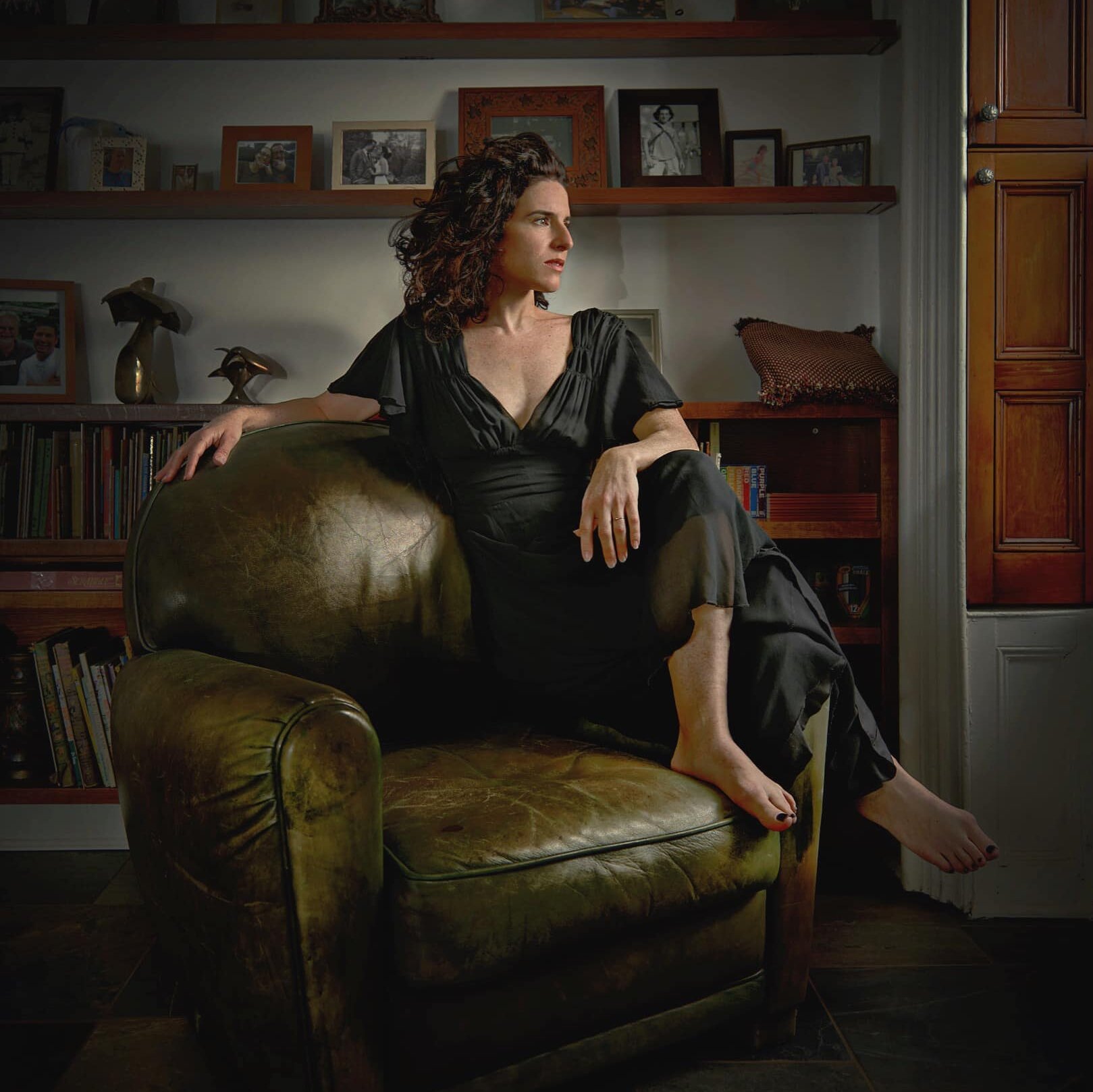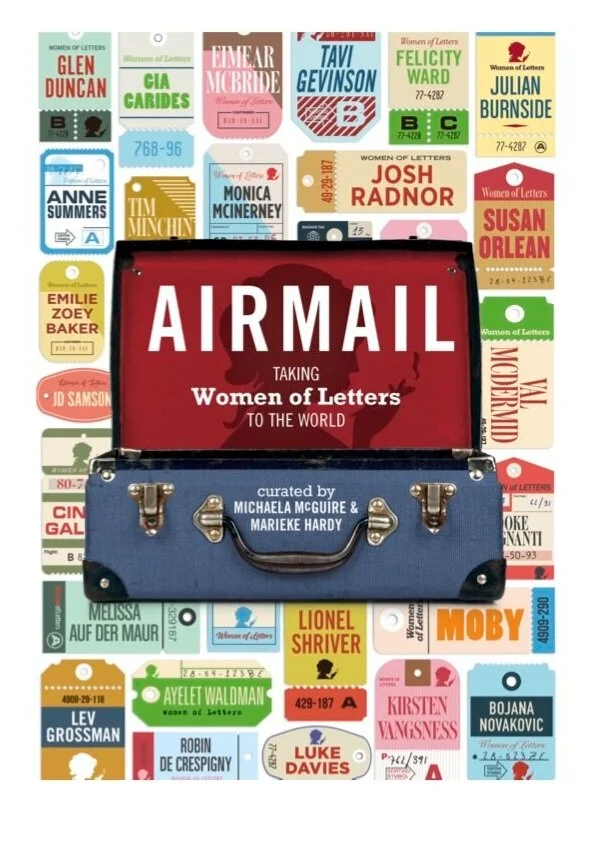Writing
Kyra Miller is the author of several one person shows, including Chosen (Joe’s Pub, music direction by Matt Ray), Bless the Telephone (The Metropolitan Room), The Bruce and Billy Show (Pangea, directed by Barb Jungr), Concert Grand 642531 and Shylock’s Daughter (University of Washington), The Uses of Disenchantment (Cornelia Street Café), Seven Deadly (with Laura Brenneman, at the Culture Project LES) and Cockblocker (Manhattan Theater Source). Her puppet show, BlueBeardGasLight was originally part of a longer one-woman show, commissioned by The Muse Project and performed at the So-Fi Festival at Westbeth.
She is also an extemporaneous storyteller and has performed in the back rooms of many bars in Manhattan and Brooklyn, as well as at The Ace Hotel, The Irondale Center, The Bell House, Freddy’s Bar, the Bushwick Starr, 100 Grand and HERE.
For samples of Kyra’s writing, see below.
Excerpt, Those People Won’t Shake Hands With You
(taken from a longer performance piece originally told at the Cornelia St. Café, the Irondale Center, Freddy’s bar and other non-Moth storytelling events around Brooklyn and NYC.)
*
We drove for at least an hour. Eventually, the beat-up minivan pulled up of what looked like an ugly funeral home built from cheap 60s brick and siding. The place was swarming with people, all of them wanting to speak with the Rabbi, mostly in an amalgam of Brooklynese andYiddish, but he was very mindful of the fact that I didn’t know a soul. While his sons entered the fray, at home, Raskin shepherded me and Abby, and Richard, the seculars, to a silent, small room in the back where he held a finger to his lips and showed us how to wash our hands from a little metal pitcher over a sink: three pours over each hand, while he recited a prayer I didn’t recognize, because I couldn’t recognize any prayers at all.
And then we went into the back. At first I thought this was the “tent;” but when Angela had said to me “we were partying in the tent until 1 with potato vodka,” I had sort of pictured something like a wedding tent, festive and atmospheric, with a klezmer band. Instead I found myself in a big, ugly room with a green corrugated-plastic roof, lit by enormous fluorescent lights. There was no getting away from the fact that Chassidus was a peasant religion, in spite of all the jokey accusations about Jews and money I’d been privy to all my life. Whatever these particular Jews were spending their money on, it wasn’t on beautiful temples. The walls were beige and there was a terrible portrait of the Rebbe Schneerson hung on the sad wall above a counter, on which sat a big clear plastic vats of tea, and another one full of stale mandl brot . Under the fluorescent glare were rows of folding public-school-lunchroom tables; and on one side sat the women in their wigs and long skirts, and on the other side, the men in their hats and long coats.
No one spoke, or prayed, or gossiped. They were writing, and writing, and writing, the only sound the scratch of tiny stubby pencils like the ones they give you at the DMV.
The Rabbi gave me one, and a square scrap of paper, and led me over to a table. We sat down.
“Now,” he whispered, “What’s your mother’s Hebrew name.” His eyes were enormous behind his thick bifocals, their sheer size and intensity making me feel terribly irresponsible as I told him, “I have no idea, her name is Diane.”
“It’s probably Dinah,” he muttered, looking at me sideways, but I just shrugged; if he’d wanted me to know obscure information like my mother’s Hebrew name, I’d have been happy to have found it out, if he’d only told me in advance. He only raised a brow and started scribbling something in Hebrew on my page, then slapped down the pencil and slid it over to me. “OK, ask for blessing.”
I looked at my scrap of paper with the Rabbi’s incomprehensible writing across the top; I looked at everyone around me, the women in their wigs, the men in their black hats and coats, all of them writing away their longing. I wished I could have just brought my journal, my own years-long chronicle of unrequited desires, to the tent. I looked at him. “I don’t know what to ask for.”
He peered back: “Well, you begin by asking for the health and happiness of your friends and family.”
Which I did want, so I wrote that down, but I was annoyed at him for pointing out that my priorities were not where they belonged. I finished and slapped down the pencil and looked back at him.
And in that moment, as my petulant self looked at his upright self, I realized that he was not just trying to convert me. He was trying to help me. I wasn’t doing anyone any favors by “being open-minded” at Angela and Domenico’s behest. He was trying to open my heart, he didn’t care about my mind. It was not a time to be cynical, or bratty or ironic. I was being invited. I was, in fact, privileged to be there, whether I could feel it or not.
And so I picked up my tiny stubby pencil again and began to ask for blessing.
I asked for my career to bloom.
I asked to find love that was somehow both passionate and lasting.
I asked for my father to be healthy.
I asked for Jacob to find equilibrium.
I wrote and wrote for a page and a half, I asked for every other impossible thing that had occurred to me to want that year, I asked and asked and asked, choking on grief, defeat, self-pity. I turned my body inward so the Rabbi wouldn’t see me being self-indulgent and sentimental, as if he didn’t already know. I knew: that kind of despair is a sin, a moral mistake. As soon as I was done, the Rabbi led our little group out of the ugly green room, out a back door, into the September night.
And where we were – I somehow hadn’t realized it on the long drive through the dark night – was in the vastest graveyard I had ever seen in my entire life. The graves stretched for what seemed like miles. Down the path, in the middle-distance, was a little hut: the grave of the Rebbe. We wended our way, me clutching the letter in the name of my mother listing all my worldly desires, through the tight rows of gravestones, all of them covered in Hebrew lettering, thousands upon thousands of them. For the first time in my life I regretted not being able to remember how to read it. I looked at the little rocks perched on the newer graves, left behind by loved-ones, to hold in place the souls of the departed.
Women with tears streaming down their faces made their way past us down the path, in the opposite direction from us, leaving. The little hut had an even-littler antechamber, and we crowded inside. One entire wall was a set of built-in bookshelves, holding prayer books. The middle set of shelves gave off a wave of heat from hundreds of tiny lit candles. The Rabbi took an unlit candle out of his pocket for me. He showed me where to hold its wick against a candle already burning on the shelf, and he blessed it, chanting something that I imagined was vaguely familiar, some vestige of Hebrew lodged in the back of my mind.
I put my candle on the shelf with the others, while he pulled down a book and handed it me. “Do you know how to pray?”
My throat closed up: shame again. “That’s all right; that’s all right.” I opened it and saw that the right sides of the pages were, blessedly, in English. “You’re going to go in the women’s door,” he pointed, “and you’ll read aloud, to yourself, pages two through eleven, and then you’ll leave your letter on the grave of the Rebbe.”
I wedged myself into the hut through the women’s door, into a tiny space packed like the 2 train at 6pm. I found myself in what felt like a closet-full of black coats and hats, men and women who had entered through separate entrances but who nevertheless crowded together, davening and reading to themselves, lips silently moving, gripping their prayer books and their letters. I couldn’t see a thing.
I gently pushed my way through the coats until I was standing in front of what we had all come there to see: a little waist-high stone wall, surrounding the gravestone of the Rebbe. The wall around the grave made a little pit, and inside the pit was an enormous, cascading pile of torn up paper. Every once in a while, someone would close their prayer book and lightly kiss the binding, then rip up their letter and add it to the pile, so that before me was a well full of the torn-up wishes for blessing of an entire community.
The Rabbi had a manilla envelope full of the letters from those of his congregants who were too sick to come to the Ohel themselves. He was rocking back and forth with more fervor than anyone there, himself a conduit for hundreds of supplicants; and when he was done he ripped them up and added them to the pile.
I opened my book and started to read the nine pages, relieved that I could pray just by reading, whispering, whether I understood it or not. But what I found, to my surprise, weren’t prayers asking for gifts. Not riches, not health, not mercy. There weren’t any requests at all for the things we think we want, but praise for everything we’re grateful to have. Nine pages of gratitude. Of devotion:
To you alone, I offer thanks.
Even if my mouth were as filled with melody
As the sea is filled with the rumble of its waves,
My lips as full of praise as is the breadth of the firmament,
My eyes as luminous as the sun and the moon,
My arms stretched as wide as the wings of an eagle,
It still would not be enough to express my thanks
For the myriad favors, wonders and miracles
You have bestowed upon me.
*
Over our heads, there was no roof, only the starry starry night, a canopy stretching over the whole city; over this little corner that I now know is Cambria Heights, Queens; over all the souls that were and the ones that still are, including my own tight little fist clutching at my own yearning. I tore up my letter and laid it on the grave of the Rebbe.
After, we turned back up the winding path, went back into the ugly room with the portrait and the plastic roof, and we ate margarine cookies. A bucktoothed guy in a T-shirt – Ari, he said his name was -- asked me what I did for a living, but I shook my head and put my Styrofoam cup of tea to my lips. I couldn’t talk just then about how I taught exercise to rich ladies and went on auditions. My throat was still tight. We all climbed back into the minivan and rode back to Brooklyn.
Richard talked the whole way home. “I don’t know, Rabbi. I want to believe, I want to believe, but I don’t believe.” The Rabbi kept silent. “I mean, Nietzsche said that God is dead...” At last, we got to Park Slope, and he climbed slowly out of the van, saying, “OK, Rabbi, see you Thursday.”
The door slammed, and the Rabbi sighed. “Uy, he doesn’t believe, he doesn’t believe, but he comes to every class every week and sits in the front row.”





